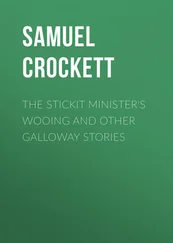Samuel Arnold - The Mirror of Taste, and Dramatic Censor
Здесь есть возможность читать онлайн «Samuel Arnold - The Mirror of Taste, and Dramatic Censor» — ознакомительный отрывок электронной книги совершенно бесплатно, а после прочтения отрывка купить полную версию. В некоторых случаях можно слушать аудио, скачать через торрент в формате fb2 и присутствует краткое содержание. Жанр: foreign_antique, foreign_prose, на английском языке. Описание произведения, (предисловие) а так же отзывы посетителей доступны на портале библиотеки ЛибКат.
- Название:The Mirror of Taste, and Dramatic Censor
- Автор:
- Жанр:
- Год:неизвестен
- ISBN:нет данных
- Рейтинг книги:3 / 5. Голосов: 1
-
Избранное:Добавить в избранное
- Отзывы:
-
Ваша оценка:
- 60
- 1
- 2
- 3
- 4
- 5
The Mirror of Taste, and Dramatic Censor: краткое содержание, описание и аннотация
Предлагаем к чтению аннотацию, описание, краткое содержание или предисловие (зависит от того, что написал сам автор книги «The Mirror of Taste, and Dramatic Censor»). Если вы не нашли необходимую информацию о книге — напишите в комментариях, мы постараемся отыскать её.
The Mirror of Taste, and Dramatic Censor — читать онлайн ознакомительный отрывок
Ниже представлен текст книги, разбитый по страницам. Система сохранения места последней прочитанной страницы, позволяет с удобством читать онлайн бесплатно книгу «The Mirror of Taste, and Dramatic Censor», без необходимости каждый раз заново искать на чём Вы остановились. Поставьте закладку, и сможете в любой момент перейти на страницу, на которой закончили чтение.
Интервал:
Закладка:
Samuel James Arnold
The Mirror of Taste, and Dramatic Censor Vol I, No. 2, February 1810
THE MIRROR OF TASTE, AND DRAMATIC CENSOR

HISTORY OF THE STAGE
It has been already remarked that at a very early period, considerably more than three thousand years ago, the Chinese and other nations in the east understood the rudiments of the dramatic art. In their crude, anomalous representations they introduced conjurers, slight of hand men and rope dancers, with dogs, birds, monkies, snakes and even mice which were trained to dance, and in their dancing to perform evolutions descriptive of mathematical and astronomical figures. To this day the vestiges of those heterogeneous amusements are discernible all over Indostan: but that which will be regarded by many with surprise, is that in all countries pagan or christian the drama in its origin, with the dancings and spectacles attending it have been intermixed with divine worship. The Bramins danced before their god Vishnou, and still hold it as an article of faith that Vishnou had himself, “in the olden time” danced on the head of a huge serpent whose tail encompassed the world. That very dance which we call a minuet, has been proved by an ingenious Frenchman, to be the same dance originally performed by the priests in the temple of Apollo, and constructed by them, to be symbolical of the zodiac; every figure described by the heavenly bodies having a correspondent movement in the minuet: the diagonal line and the two parallels representing the zodiac generally, the twelve steps of which it is composed, representing the twelve signs, and the twelve months of the year, and the bow at the beginning and the end of it a profound obedience to the sun. About the year four hundred after the building of the city of Rome, the Romans, then smarting under great public calamity, in order to appease the anger of heaven, instituted theatrical performances, as feasts in honour of their gods. The first Spanish plays were founded, sometimes on the loves of shepherds, but much more frequently on points of theology, such as the birth of Christ, the passion, the temptation in the desert and the martyrdom of saints. The most celebrated dramatic poet of Portugal, Balthazar, wrote dramas which he called Autos chiefly on pious subjects – and the prelate Trissino, the pope’s nuncio, wrote the first regular tragedy, while cardinal Bibiena is said to be the author of the first comedy known in Italy, after the barbarous ages. The French stage began with the representation of Mystries, by the priests, who acted sacred history on a stage, and personated divine characters. The first they performed was the history of the death of our Saviour, from which circumstance the company who acted, gave themselves the name of the confraternity of the passion: and in England one single paper which remains on record, proves that the clergy were the first dramatists. This paper is a petition of the clerks or clergy of St. Paul’s to king Richard the Second, and dated in 1378 which prayed his majesty to prohibit a company of unexpert people from representing the history of the Old Testament, to the great prejudice of the said clergy, who had been at great charge and expense to represent the same at christmas.
It would be little to the purpose, to dwell longer on that part of the history of the drama, which lies back in the darkness of remote antiquity. Having shown that it did exist, in some shape or other, of which but very imperfect traces remain, and of course very inadequate notions can be collected, all further inquiry backward would be but the loss of so much time and trouble. The scope of human knowledge is extended at too heavy a price when the industry which might be more usefully applied, is exercised in hunting down origins into the obscurity of times so extremely distant. Where the greatest pains have been lavished on that sort of research, little knowledge has been gained; and the most diligent inquirers have been compelled either to confess that they were baffled, or rather than own their disappointment, to substitute fable for fact, and pass the fictions of imagination for historical truths.
It is in the records of Greece the dramatic art first presents itself in the consistent shape and with the circumstantial detail of authentic history. There, plays were first moulded into regular form, and divided into acts. Yet the people of that country knew so little of its having previously existed in any shape, in any other country, that the different states contested with each other, the honour of having invented it; each asserting its claim with a warmth that demonstrates the high sense they entertained of its importance: and surely what such a people highly valued is entitled to the respect of all other nations. Of the drama, therefore, it might perhaps be enough to say that it was nursed in the same cradle with Eloquence, Philosophy, and Freedom, and that it was so favourite a child of their common parents, that they contended, each for an exclusive right to it. The credit of having first given simplicity, rational form, and consequent interest to theatrical representations has, by the universal concurrence of the learned, been awarded to Attica, whose genius and munificence erected to the drama that vast monument the temple of Bacchus, the ruins of which are yet discernible and admired by all travellers of taste and erudition.
The origin of tragedy is a subject of curious contemplation. A rich planter of Attica, finding, one day, a goat devouring his grapes, killed it, and invited the peasantry to come and feast upon it. He gave them abundance of wine to drink, intoxicated with which they daubed their faces with the lees, ornamented their heads with chaplets made of the vine branches, and then danced, singing songs in chorus to Bacchus all the while round the animal destined for their banquet. A feast so very agreeable was not likely to go unrepeated; and it was soon reduced to a custom which was pretty generally observed in Attica, during the vintage. On those occasions the peasants, absolved from all reserve by intoxication, gave a loose to their animosities against the opulent, and in token of defiance of their supposed oppressors, went in bodies to their houses, and in set terms of abuse and sarcasm, called aloud for redress of their grievances. The novelty of the exhibition drew a multitude round them who enjoyed it as a new species of entertainment. Far from preventing it, the magistrates authorized the proceeding in order that it might serve as an admonition to the rich; taking special care, however, that no positive violence should be resorted to, and thus making it a wholesome preventive of public disorder. To this yearly festival which was called “the feast of the goat” the people of all parts were invited; and as this extraordinary spectacle was performed in a field near the temple of Bacchus, it was gradually introduced into the worship of that god. Hymns to the deity were sung both by priests and people in chorus while the goat was sacrificing, and to these hymns the name was given of Tragodia (tragedy) or “the song of the goat.”
During these exhibitions the vintagers, intoxicated with wine and joy, revenged themselves not only on the rich by publishing and satirizing their injustice, but on each other with ridicule and sarcasm. In their other religious festivals also, choruses of fauns and bacchants chaunted songs and held up individuals to public ridicule. From such an humble germe has sprung up an art which in all parts of the world has, for centuries, administered to the advancement of poetry and elegant literature, and to the delight and improvement of mankind.
Читать дальшеИнтервал:
Закладка:
Похожие книги на «The Mirror of Taste, and Dramatic Censor»
Представляем Вашему вниманию похожие книги на «The Mirror of Taste, and Dramatic Censor» списком для выбора. Мы отобрали схожую по названию и смыслу литературу в надежде предоставить читателям больше вариантов отыскать новые, интересные, ещё непрочитанные произведения.
Обсуждение, отзывы о книге «The Mirror of Taste, and Dramatic Censor» и просто собственные мнения читателей. Оставьте ваши комментарии, напишите, что Вы думаете о произведении, его смысле или главных героях. Укажите что конкретно понравилось, а что нет, и почему Вы так считаете.












